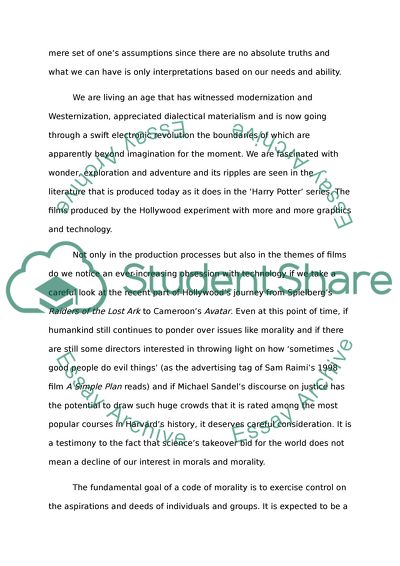Cite this document
(“What Is Morality Why Should Society Be Moral At All Essay”, n.d.)
Retrieved from https://studentshare.org/philosophy/1476492-what-is-morality-why-should-society-be-moral-at
Retrieved from https://studentshare.org/philosophy/1476492-what-is-morality-why-should-society-be-moral-at
(What Is Morality Why Should Society Be Moral At All Essay)
https://studentshare.org/philosophy/1476492-what-is-morality-why-should-society-be-moral-at.
https://studentshare.org/philosophy/1476492-what-is-morality-why-should-society-be-moral-at.
“What Is Morality Why Should Society Be Moral At All Essay”, n.d. https://studentshare.org/philosophy/1476492-what-is-morality-why-should-society-be-moral-at.


